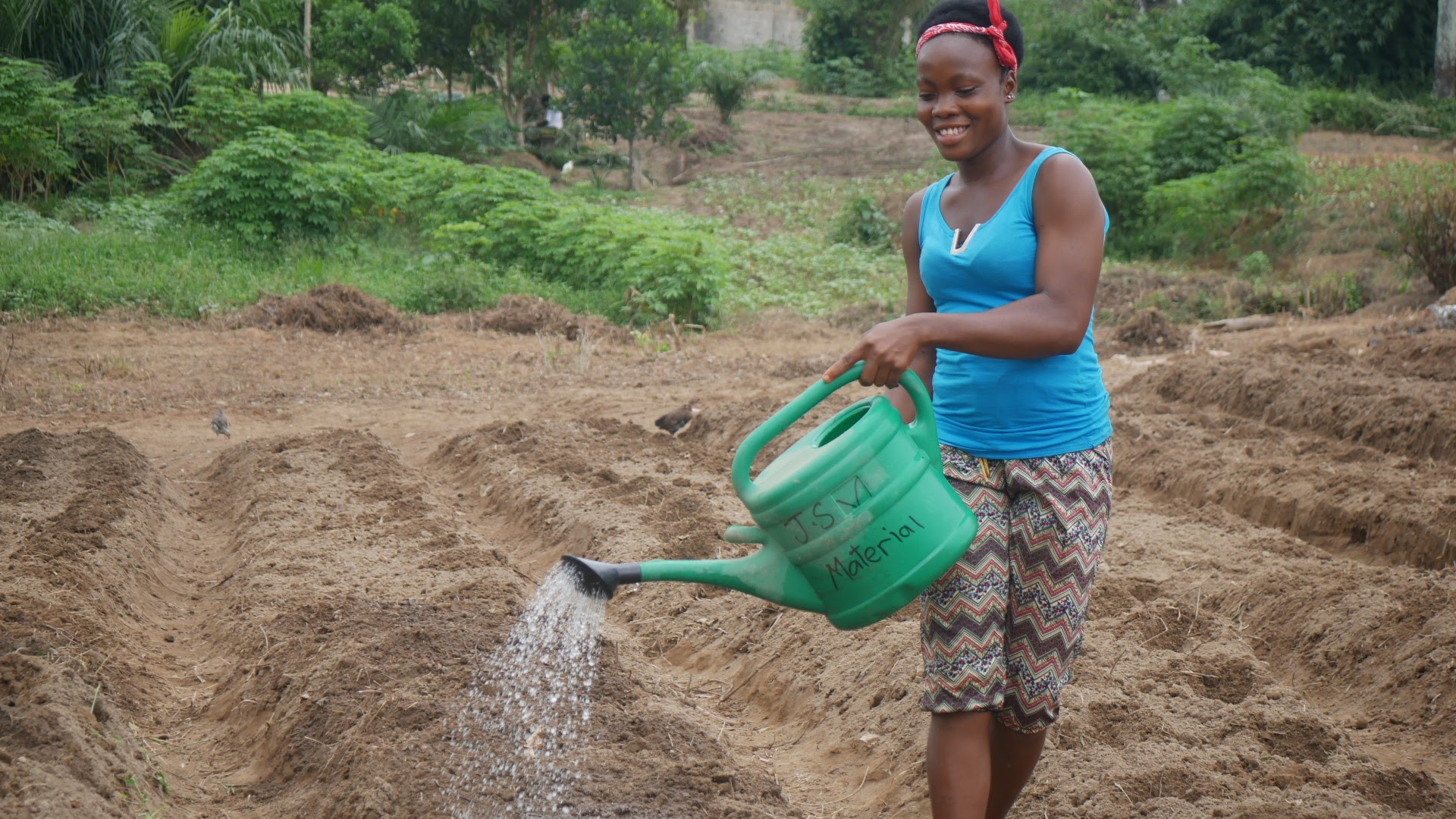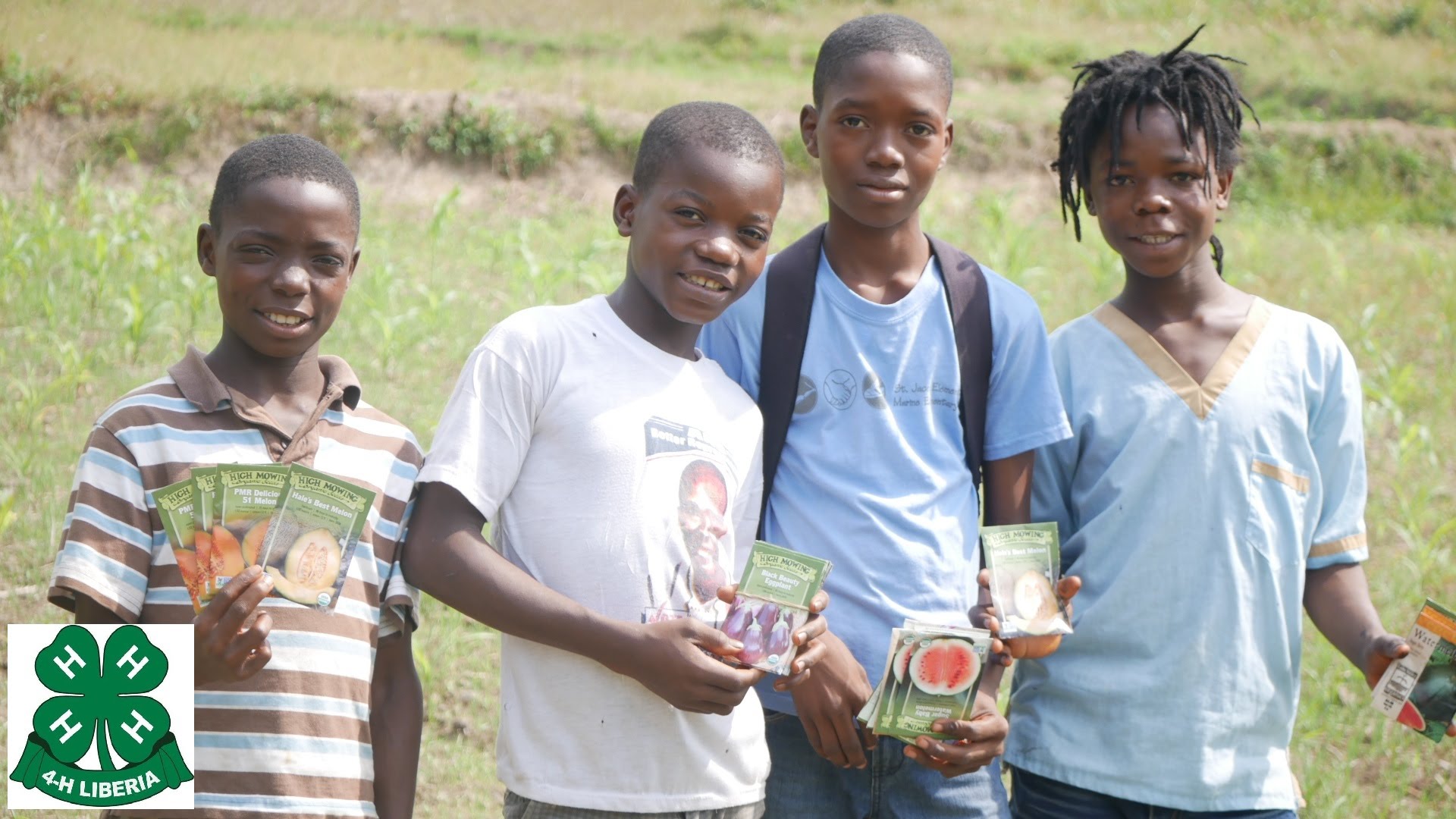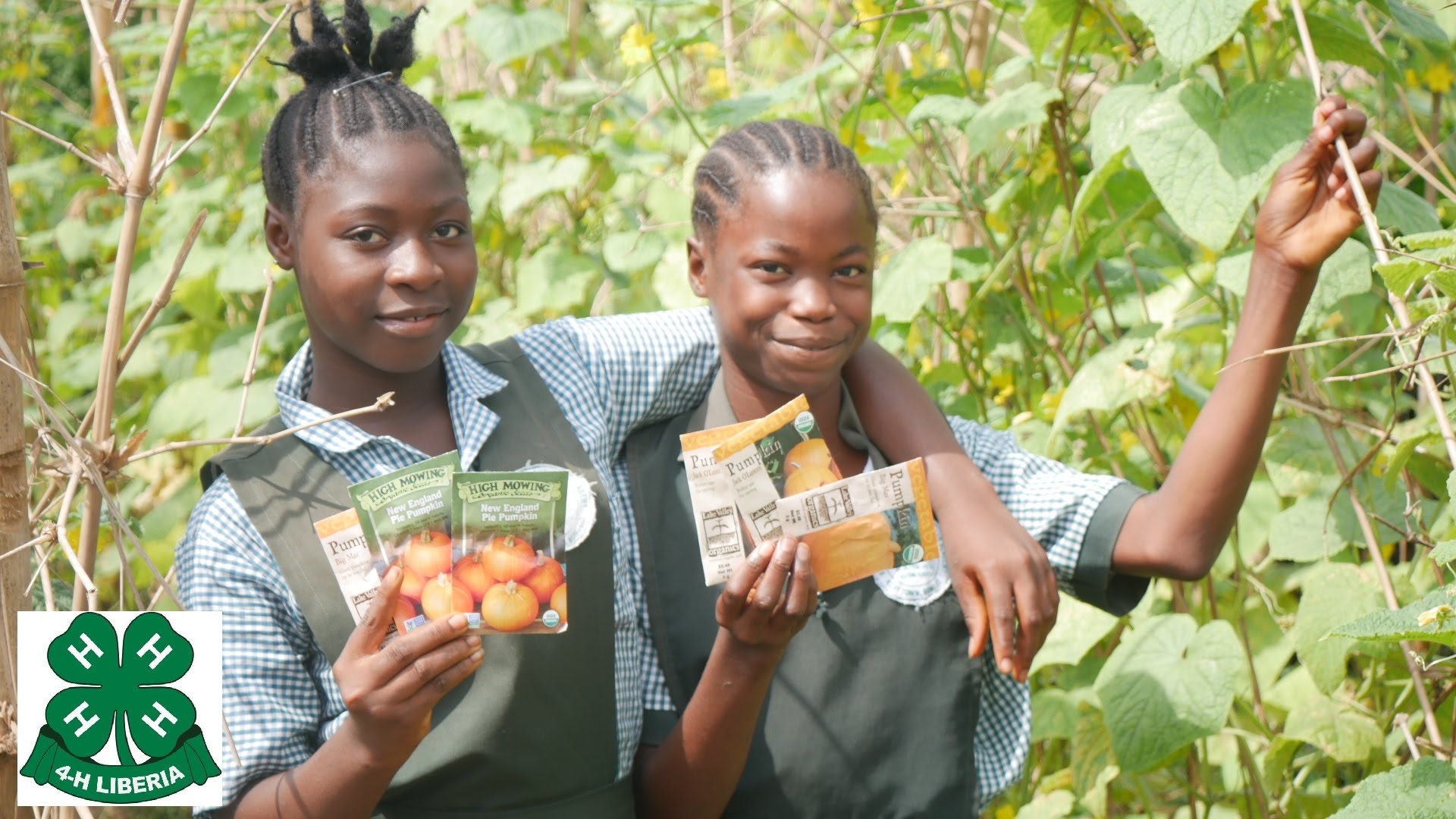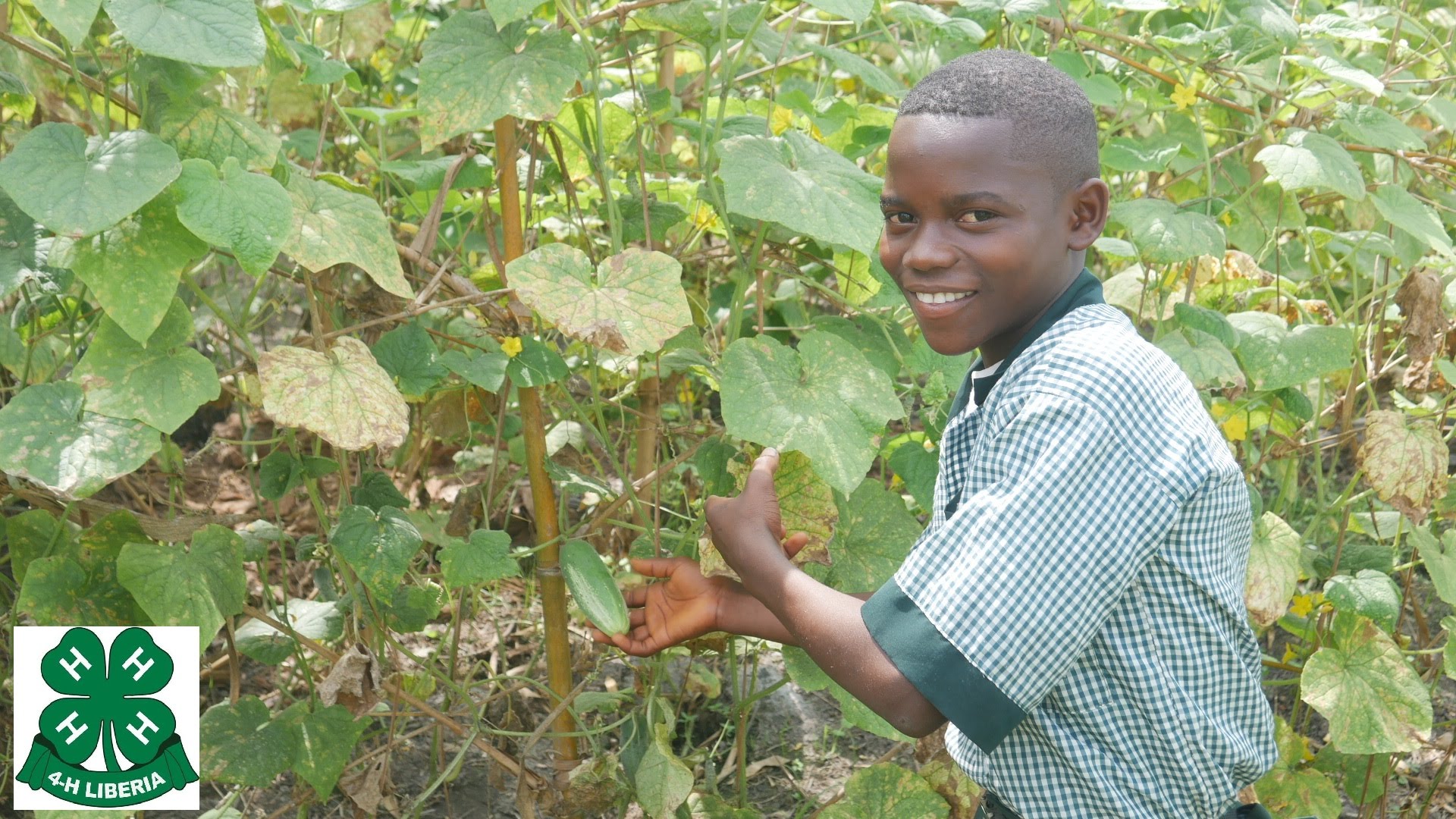G. Umaru Sheriff
G. Umaru Sheriff is the National Executive Director of 4-H Liberia and one of the key individuals that re-established 4-H in 2006, dedicated to teaching agriculture education and leadership to youth in Liberia.
His main duties are to establish 4-H clubs, recruit and train 4-H staff and volunteers, and implement the day-today activities of 4-H Liberia to develop life skills in youth and build food security. He also serves as a reconciler in his community, helping to negotiate misunderstandings among community.
Umaru also serves as a Sunday school teacher at the Faith United Evangelical Church in Monrovia.

Liberia is less affected by the drought than Kenya, but he can still use help supplying food to his community.
He has submitted the report below:
4-H Liberia empowers young people to become self-sufficient citizens by developing their potential in premiere leadership, agricultural sustainability, and essential life skills. The acronym 4-H stands for Head, Heart, Hands and Health. It is one of the largest youth organization in the world but operates independently in each country.
We believe that one of the best and most sustainable ways to develop young people is by empowering them in agriculture. The model that is used to train youth is School Based- Agricultural Education (SBAE).
SBAE has evolved into four components:
Classroom instruction- provides a scientific foundation for students of agriculture.
- School demonstration farm- The school demonstration farm connects science and practice on a student-led farm that introduces improved innovations to farmers in the community.
- Home entrepreneurship project- (a form of Project-Based Learning) allow students to “learn and earn”, receive individualized instruction from their agriculture teacher and spread their knowledge to parents and other farmers in the community.
- Leadership development- through the Positive Youth Development framework of a 4-H Club, it prepares students for an active life in civil society and equips them with life skills such as public speaking, parliamentary procedure, gender equity and teamwork. The school-based agricultural education model yields significant impact to: parents benefiting from their children staying in school; youth that are elevated in standing within their community; and the impact to the local economy and their standards of living are improved.
Currently, there are 157 4-H Clubs established in 7 counties with approximately 6,000 members. 46 percent of the leadership is female and are into competitive leadership with their male friends.
Accomplishments:
- 157 agriculture/science teachers are trained in SBAE within the schools that host 4-H clubs.
- 157 Parents are trained to provide support to the teachers and encourage other parent counterparts to give supports to the school demonstration farm.
- 14 trained Agricultural Education Field Officers (extension agents) are trained to provide onsite expertise for students, teachers, and community members.
- 157 school demonstration farms have been established using improved farming methods.
- Each youth is required to demonstrate a home entrepreneurship project at their residents by demonstrating their 4-H, learned, methods of farming.
- Parents and community members have taken notice and learning new agriculture innovations from their children’s home entrepreneurship project and replicating it on their farms. The results are encouraging! Family member have reported doubling their yields by adopting the new methods.
- Each year in December, the National Agriculture Fair gives the 4-H youth the opportunity to exhibit their produce and compete against competitors for best in show.
- Children are learning public speaking through presenting their projects to the community members and in competitions.
Challenges:
- Lack of office space for work purpose- The current office that hosts 4-H Liberia is a room within the Liberia Annual Conference of the United Methodist Church. The size of the room is 10ft x 7ft. This room was given to 4-H in 2012 at the time 4-H Liberia had 1 staff and 8 clubs. The current staff is 18 making it challenging to work at the office.
Solution.
- Short term – Offices with 4- 6 rooms are available in Monrovia to rent which cost $500-$1,000 per month base on the location. With the availability of funds from partner(s) this challenge will hope to solve.
- Long term- The cost of lot land in a suburb of Monrovia generally costs between $1,400-$1,700. The estimated cost to build an office is between $30,000-$45,000. Funds contributed by partners to construct a building for office to be used by 4-H Liberia, it will solve this challenge permanently.
- Limited office supplies- the cost of supplies used by 4-H monthly is between $300-$400.
Solution: With the availability of funds from partner(s) will help solve this challenge.
Limited funding to host Agriculture Fair- Each year, 4-H Liberia host it National Youth Agriculture Fair to award youth in agriculture. The total cost to host such a major event costs between $8,000-$10,000.
Solution: Receiving funds to cover the costs from partner(s), would solve this challenge
Repair cost- 4-H Liberia has 16 motorbikes that is used by the Extension Officers and a Toyota Landcruiser Truck and a Minibus that is used by the national staff. The monthly cost of repair for the mentioned items is $400-$500. Liberia has unimproved rural roads and many of the 4-H Clubs are located in the bush.
Solution: With the availability of funds from partner(s), would help solve this challenge.
These mentioned items that serve as challenges are very crucial for the growth of 4-H in Liberia.
All donations could be made directly to Seed Solution with will be forwarded to 4-H Liberia.
Watering the Crops

Seeds Ready to Plant

Seeds Bring Fellowship

The Results Are In!




